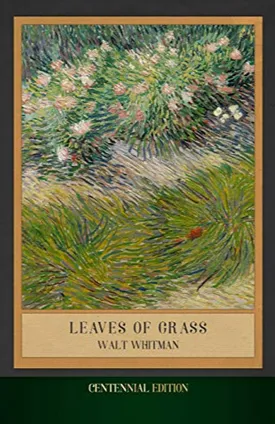Walt Whitman
Walt Whitman was a poet, journalist, and essayist who is widely recognized as the father of free verse and one of the most influential writers of the nineteenth century. Born in Long Island, New York, in 1819, he attended a one-room schoolhouse in Brooklyn and had little formal educational training. His most famous works include Leaves of Grass, published in 1855, and his Civil War memoir, Specimen Days and Collect (1882).
Whitman’s writing was ahead of its time, especially in its frank exploration of homosexuality and even its treatment of taboo subjects like suicide. He wrote passionately and evocatively of the human experience, utilizing free verse, short phrases, and concrete detail to convey his message. His poetic voice was deeply rooted in his personal history, often drawing from his own life events and those of his friends and family. He employed popular American idioms to capture a distinctly American experience and address broad social issues such as slavery and race relations. His style of writing was highly influential, inspiring writers such as Ezra Pound and Allen Ginsberg.
Whitman’s seminal work, Leaves of Grass, was published in 1855, but was revised and expanded throughout his lifetime. It contained twelve poems, including his famous poetic ode to democracy, "Song of Myself," which featured revolutionary theories about the transcendent possibilities of free verse. These poems would endear themselves to generations of Americans and his style of writing became synonymous with the nation's expansion. In addition to Leaves of Grass, Whitman’s other collections included Drum-Taps (1865) and Passage to India (1871).
Despite his poetic prowess, Whitman was also an active journalist and essayist, writing for many periodicals on a variety of topics. He believed in individualism and political and legal equality for all, and wrote with an eye for social reform. Whitman became a prominent figure during the Civil War, when he traveled to hospitals to visit wounded soldiers and wrote a set of highly emotional poems published in Drum-Taps. He also served as a nurse towards the end of the war, witnessing firsthand the atrocities of battle. Later in his career, Whitman wrote one of his most significant works, Specimen Days and Collect (1882), an autobiographical account of his experiences during the war.
A true visionary, Whitman's influence can still be felt in modern poetry and literature. His commitment to individual freedom and expression informed the works of future generations of poets and writers. By pushing the boundaries of what it means to write poetry, Walt Whitman truly revolutionized the art form.

